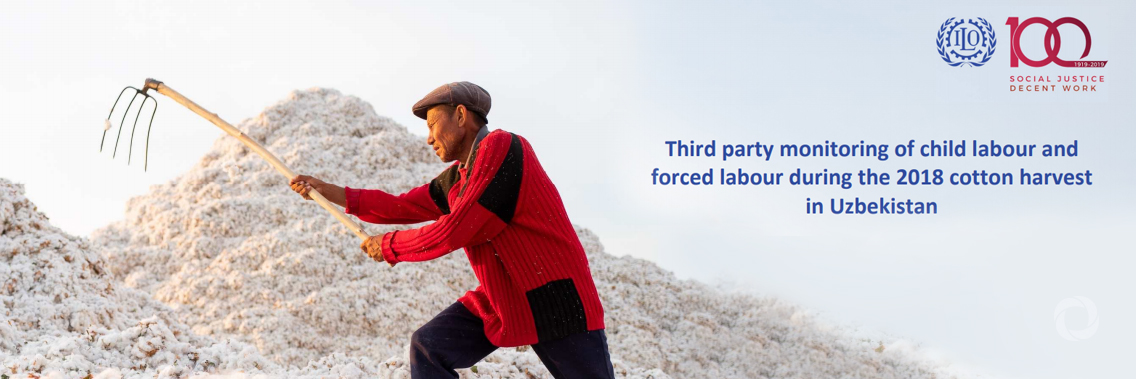A new report ILO shows the Uzbek government did not systematically use child labour or forced labour during the 2018 cotton harvest. Human rights activists welcomed the progress but also demanded further reforms.
The report, presented at a conference in Brussels, found that 93 percent of those involved in the 2018 cotton harvest were not forced to work and that the systematic recruitment of students, teachers, doctors and nurses was a thing of the past.
However, there were still cases of recruitment of state institutions’ staff at the local level, and 206 officials and managers were disciplined for forced labour violations, leading to fines, demotions and dismissals. The feedback mechanisms operated by the Ministry of Labour and the Federation of Trade Unions received and investigated more than 2,500 cases.
Child labour, which was previously a serious problem during harvest time, is no longer a major concern.
The report is based on more than 11,000 unaccompanied and unannounced interviews with a representative sample of the country’s 2.5 million cotton pickers. The ILO has been monitoring the cotton harvest for child labour since 2013. In 2015, it began monitoring the harvest for forced labour and child labour as part of an agreement with the World Bank.
The ILO Third-Party Monitoring (TPM) project in Uzbekistan will now focus on the remaining challenges, particularly the gradual transfer of responsibility for monitoring to labour inspectors, trade unions, local human rights activists and investigative journalists. There will also be a focus on enabling responsible foreign investment and trade with the Uzbek garment and textile industry, which has the potential to help completely eradicate forced labour while also creating hundreds of thousands of decent jobs for the country.
Read and download the ILO Third-Party Monitoring (TPM) project in Uzbekistan.
Original source: ILO
Published on 03 April 2019

